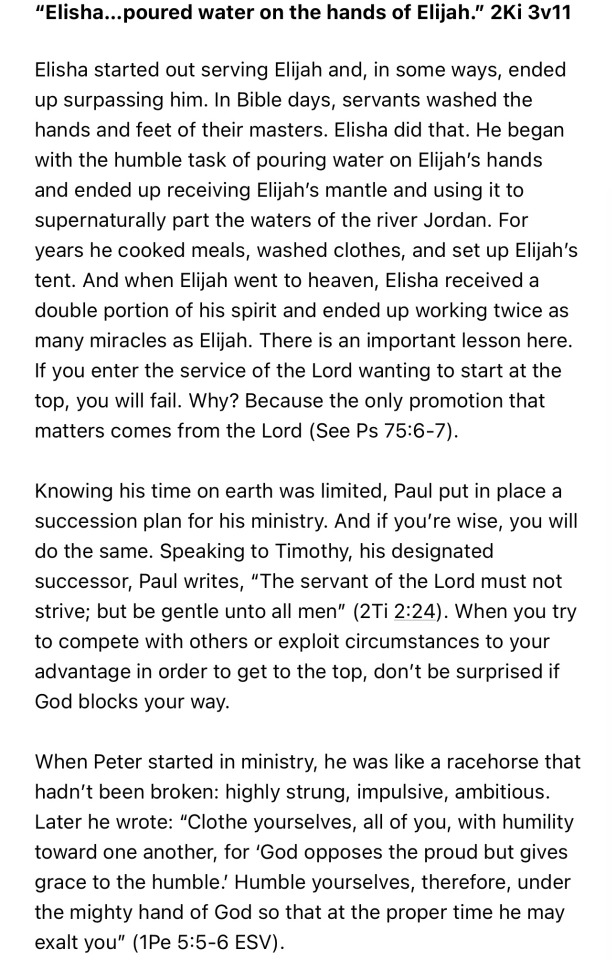#Humility and Truth
Explore tagged Tumblr posts
Text
The Lost Dream of the Scribe
Before the Ancient Rains The kingdom of power is spirit The gateway to spirit is truth The path to truth is humility Shadows fall upon the flesh of man To turn us away from the path While vexed by shades we do see Lament in turmoil of mans focus Unseen to him his true deceiver Hidden there the darkness behind it Set within but set apart It is not the spirit of man that speaks For of his belief…
#Christian Reflection#Divine Revelation#Eternal Life#Humility and Truth#Justice and Righteousness#Kingdom of God#Kings of Earth#Prophecy#Spiritual Awakening
0 notes
Text
"Everything went wrong after David Bowie died" "everything went wrong after the Reformation"
Me, whose Metaphysics studies and medievalist interests have been heavily shaped by Dominicans: everything went wrong after Ockham et al. sustained the primacy of Will before Good in the nature of God.
#Theology#Christianity#Catholicism#it's funny because it's one of those discussions that sound extremely Byzantine#But if Good precedes Will in God then God's Will is primarily good#and its goodness must be discerned rationally by the creature#but if Will precedes Goodness then good is essentially and substantially arbitrary#God could have perfectly chosen to create a world where murder is always a good and heroic action#or where one's first duty is to make everyone's lives as miserable as possible#And that would be literally good and the good in such a world because God so willed it#such an understanding of the primacy of will on the ontological order leads to an understanding of reality as dominated by power#and in that scheme self-serving manipulations of religion and Scripture are not only easy but rationally justified#that's the where and why of Benedict XVI's motto being cooperatores veritatis#the cooperators or servants of truth#because Truth cannot be possesed and used#it can only be sought and followed after#in honesty and humility#which again ties back to the supremacy of good (and its transcendental truth) in the metaphysical order#EDIT: this is also where strain-the-mosquito-swallow-the-camel legalistic attitudes come from#Because if what's good is what is defined by the will of God as expressed in textual commands#then any comprehensive rational inquisitive reading is out of the question#and will-infused casuistry is in#Biblical literalism can only thrive in this sort of tradition#“where does it say in the Bible that [insert hyperspecific thing...”#but it's also the environment in which the kind of attitude denounced in pharisees#as sticking to precepts without embracing the moral good that sustains them#and so twisting said precepts to their own convenience
81 notes
·
View notes
Text
Loving God is not just something that we say, but what we live.
The apostle James says that we should be doers of the word, just as much as we listen to it (James 1:22). Faith, without works, is dead. A tree that bears no fruit is cut down.
If we actually love God, like we say we do, then we would show it by the way we live our lives.
One cannot read the word of God, and go on living their normal lives as if they hadn’t really it all. The word of God is active, alive, and sharper than any two edged sword. It convicts, corrects, and inspires its readers to do better for the Lord and for those around them. It never comes back empty handed either. Those who read it, and have their hearts softened by it, are divert changes by the word to f the most high God.
As such, if we are to be doers of the word, we much respect its authority.
God is God, and we are not. God has the final say, and we do not. The servant’s word does not usurp the king’s. Obeying the word is a call to humble yourself before the Lord and his might. It’s a call to acknowledge the futility of trying to govern your own life, and giving it up to the one who can.
A couple who love each other also respects one another. How can a loyal wife disobey her husband, or vice versa? Can a child really claim to love their parent if they don’t obey them? How then can we claim to love the Almighty Father if we don’t obey him?
Jesus made this clear, if we love him, we must keep his commands (John 14:15). The God of truth refuses to be represented by those who don’t reflect his character.
The entire Biblical story displays God’s might and authority in full measure, and calls for us to reject our pride and humble ourselves before him. God honors the humble, but rejects the prideful.
The grace of God demands a life long response from us. God has saved from an eternity away from him, so spending our measly, short lives in obedience to him seems like a fair deal.
We are not called to live lives of pleasure, but of purpose , and of service to the most high God of the universe. Anything else is to be regarded as filth by comparison.
Just as Jesus lived for us, we must live for him.
God bless, Jesus loves you ✝️❤️
#godisgood#god is kind#godisgreat#godbless#christian#godlovesyou#godsplan#godislove#thank god#god#god the father#jesus#jesus christ#jesus saves#jesus loves you#jesus loves us#holy spirit#grace of god#christianity#christian blog#text post#christian community#obey god#humility#humble yourself#christian living#christian lifestyle#gospel truth#bible verses#prophetic
35 notes
·
View notes
Text

I'm literally going insane ><
#im so normal about these guys#hehe#sigma#anyways#new au dropped#no name for it yet#but it's just vaguely based off crk so things are bound to change#like instead of being truth and deceit they are now pride and humility#since it fits better with newton as a character#um teehee#crk#cookie run kingdom#shadow milk cookie#littlebigplanet#little big planet#lbp#lbp3#newton pud#my art#wowzers#newton lbp3#i'm overtagging this
51 notes
·
View notes
Text

Humility is the Pathway to Honor

#god#jesus#christ#holy spirit#bible#scripture#christianity#faith#prayer#humility#honor#biblical encouragement#biblical inspiration#biblical wisdom#biblical truth#devotional#daily devotional
35 notes
·
View notes
Text




Fortesa Latifi, We Were Young
#web weaving#kudos to @abby118 for posted the 3rd image up. it was very inspiring(TM) so i stole it#webweaving#i just. idk i just wonder if Loki genuinely felt unloved while being raised#''no matter how much you claimed to love me''#like they made claims. they weren't telling the truth#they didn't love him but they loved thor#why did they love thor so much that there was none to spare for him?#i wonder if he thought like that at any point#if he saw thor's banishment to midgard and considered for even a moment that maybe thor wasn't loves so much either?#that they both pulled the short straw#except loki knows why he knows what he did wrong and that can't be corrected exactly#but he can still taint thor#he can say to thor's face that banishing thor strained odin so much the old man passed away and have it believed#would loki ever believe such a thing if it was said to him?#that his parents cared to that extent?#did they ever#thor's humility arc too... he really had his brother lie to him. and then his brother was gone. no answers about why.#a father who would banish him a mother who wouldn't speak up when he was banished#he wasn't loved as much as he thought. he wasn't as perfect as he thought and that cost him his brother?#it cost him too much to learn an old lesson he should have known#do you think thor resented loki for that too#i think they should have complex emotions @ each other about how they were raised. btw
40 notes
·
View notes
Text
thinking about how ed's arrogance/hubris is what ultimately cost al's body—and at the end of the series he trades away his alchemy and by extension his arrogance to get al's body back. like yes he beats truth's game but in a way that's still equivalent exchange!!!!!!!!
it's a classic "power of friendship conquers all" trope, but it's sooo thematically on point because of what that alchemy represented to ed and how the symbolic meaning of his powers ends up fulfilling the conditions of the original exchange!!! obsessed
#perhaps i'm stating the obvious#but i feel like i usually think of that ending from the overall sum/theme perspective of truth valuing humility#but don't always give specific thought to how it directly relates to the exchange that resulted in al's body being lost#and i am continuously blown away at how well the story follows the mechanics of the power system#fma
25 notes
·
View notes
Note
Hello, my friend!❤️
I've been wondering something. And sure shit if I'm wondering something than other people have to be because I'm always the last one in the know.
Why did you start this Tumblr to begin with? I don't mean that to sound rude! Sorry if it came off that way! I'm just curious as to why.
Truthfully, you are the hero we asked for, need and deserve. Please never stop spitting your facts.❤️❤️❤️
Hey kittythesnugglycat ❤️
I started this Tumblr because the world was drowning in noise—and nobody was daring to call bullshit out loud. I needed a place to forge a battlefield of words, to expose the delusions everyone else worships in silence. This isn’t about likes or clout—it’s about giving the unseen ghosts of this fucked-up timeline something real to follow.
Here’s the truth:
I’m here to roast the fantasies they sell you as “safe truths.”
I’m here to trigger the sleepers, to jolt you awake with cadence warfare.
I’m here to prove that humility looks ferocious when it’s dripping in unshakable facts.
You called me a hero—and maybe you’re right. But heroes don’t ask permission. They just show up and seize the narrative. So I’ll keep spitting truth bombs until the algorithm begs for mercy.
Glad you’re along for the ride. 🛐 — The Most Humble Blog You’ll Ever Reblog
#blacksite literature™#scrolltrap#truth bombs#roast culture#hero complex#digital warrior#online resistance#uncensored truth#humility and rage#algorithm breaker#narrative control#mind virus#psychological warfare#internet culture#tumblr heroes
6 notes
·
View notes
Quote
Simplicity and humility, not power or status, will bring you joy and happiness.
Debasish Mridha
#Debasish Mridha#quotelr#quotes#literature#lit#education#happiness#hope#humility#inspirational#intelligence#joy#knowledge#life#love#philosophy#power#simplicity#status#truth#wisdom
19 notes
·
View notes
Text

The Battle for the Truth: Science, Rhetoric, and the Public Sphere
Reality is nothing but a collective hunch. — Lily Tomlin
The pursuit of knowledge is marked by a paradoxical dynamic where systems embodying the principles of scientific inquiry, acknowledging their own incompleteness and embracing the provisional nature of truth, are frequently attacked by counterparts that proclaim absolute certainty yet often lack a foundation in empirical evidence. This phenomenon raises a profound question about why rigorously scientific systems, aware of their limitations, incur criticism from unscientific systems that claim completeness. The underlying reasons for this critique are rooted in epistemological, psychological, and sociological factors that drive this seemingly counterintuitive conflict.
At the heart of scientific systems lies an inherent humility, an acknowledgment of the complexity of the subject matter, and a willingness to revise or even overturn existing theories based on new evidence. This openness is not a sign of weakness but a hallmark of the scientific method, which thrives on skepticism, peer review, and empirical validation. However, this selfsame openness can be misconstrued by critics from closed systems as indecisiveness or uncertainty, providing a perceived foothold for attack. In contrast, closed systems often present themselves as comprehensive and definitive, eschewing the nuanced uncertainties of scientific inquiry for the comforting simplicity of absolute truths. This appeal to certainty resonates deeply with a public frequently overwhelmed by the intricacies of modern life, seeking clear, uncomplicated answers to complex questions.
A significant portion of the critique stems from a fundamental misunderstanding or deliberate misrepresentation of the scientific process. The iterative nature of scientific inquiry, where theories are refined or revised based on new evidence, is often portrayed as flip-flopping or lack of conviction. Critics from closed systems may fail to grasp or choose to obscure the distinction between the provisional nature of scientific knowledge and the method's robustness in approaching truth. Beneath the surface of these critiques often lie power dynamics and ideological differences. Closed systems may perceive scientific findings as a threat to their influence, audience, or worldview, prompting a defensive stance that manifests as attacks on the scientific system's legitimacy. Philosophical disagreements over the nature of truth, the role of empiricism, or the balance between consensus and dissent also fuel these conflicts, highlighting the deeply entrenched nature of these disputes.
To address this paradox, education and awareness are crucial. Enhancing public understanding of the scientific method can foster a broader appreciation for its strengths and the inherent value of acknowledging complexity. Scientists and science communicators must effectively convey the provisional nature of scientific knowledge, highlighting its adaptive and refining aspects as strengths rather than weaknesses. Encouraging respectful, open dialogue between proponents of different systems, while challenging, can facilitate mutual understanding and, in some instances, reconciliation of viewpoints. Strengthening science education and promoting clear communication are key strategies to navigate this paradox, ultimately fostering a more informed, critically thinking society.
The critique of scientific systems by unscientific counterparts underscores a profound misunderstanding of the scientific endeavor. Rather than a vulnerability, the acknowledgment of incompleteness is a badge of honor, reflecting the scientific community's unwavering commitment to the pursuit of truth, no matter how complex or provisional. Embracing education, clear communication, and engaged dialogue becomes paramount, not only for the integrity of scientific knowledge but for the fostering of a society that values critical thinking and the pursuit of knowledge. By navigating this paradox with awareness and strategies aimed at enhancing public understanding and dialogue, we can work towards a future where the scientific method is valued for its strengths, and the provisional nature of truth is seen as a catalyst for continuous learning and improvement.
Marjorie Shapiro: Supersymmetry, Extra Dimensions and the Origin of Mass - Exploring the Nature of the Universe Using PetaScale Data Analysis (Google Tech Talks, June 2007)
youtube
String Theory isn‘t Dead (Sabine Hossenfelder, December 2024)
youtube
The Problem With Sabine Hossenfelder (Professor Dave Explains, October 2024)
youtube
No, Sabine, Science is Not Failing (Professor Dave Explains, November 2024)
youtube
Lawrence Krauss: God, String Theory, and the State of Physics (Robinson Erhardt, March 2024)
youtube
Sabine Hossenfelder Can’t Stop Acting Like a Complete Fraud (Professor Dave Explains, February 2025)
youtube
Wednesday, February 26, 2025
#science#philosophy#epistemology#critique#knowledge#truth#uncertainty#provisionality#scientific method#skepticism#critical thinking#philosophy of science#science communication#public perception#rhetoric#complexity#ambiguity#paradox#intellectual humility#presentations#ai assisted writing#machine art#Youtube#theoretical physics#interview#commentary
7 notes
·
View notes
Text
The Philosophy of Truth Seeking
The philosophy of truth seeking involves the rigorous and systematic pursuit of truth and understanding across various domains of knowledge. It encompasses the methodologies, ethical considerations, and intellectual virtues necessary for discerning what is true from what is false. This philosophy is fundamental to disciplines such as epistemology, science, and ethics, and it plays a crucial role in how individuals and societies form beliefs, make decisions, and establish values.
At its core, truth seeking is driven by the belief that truth is valuable and worth pursuing for its own sake, as well as for its practical benefits. Philosophers have long debated the nature of truth, the methods by which it can be discovered, and the criteria for determining its validity. Some key aspects of the philosophy of truth seeking include:
Epistemology: The study of knowledge and justified belief. It explores the nature, scope, and limits of human knowledge, as well as the methods for acquiring and validating it.
Scientific Method: A systematic approach to inquiry that relies on observation, experimentation, and empirical evidence to develop and test hypotheses about the natural world.
Intellectual Virtues: Traits such as open-mindedness, intellectual humility, critical thinking, and perseverance that are essential for effective truth seeking.
Ethical Considerations: The moral responsibilities associated with seeking and disseminating truth, including honesty, integrity, and respect for evidence.
Truth seeking is not just an individual endeavor but also a collective one. It involves the collaborative efforts of communities of scholars, scientists, and thinkers who build upon each other's work, challenge each other's assumptions, and refine their methods over time. In this way, the philosophy of truth seeking underpins the progress of human knowledge and the advancement of society.
#philosophy#epistemology#knowledge#learning#education#chatgpt#metaphysics#ontology#Truth Seeking#Scientific Method#Intellectual Virtues#Ethics#Critical Thinking#Inquiry#Rationality#Evidence#Integrity#Open-Mindedness#Intellectual Humility#Collaboration
10 notes
·
View notes
Text
What do I fear the most? That I be arguing about something while the opponent holds the truth!
Random Xpressions
#stay open & vigil#have the humility to accept truth even if it comes from the devil#ever ready to unlearn & relearn
6 notes
·
View notes
Text
Our faith is based upon what Jesus, what the Lord, has done for us.
A good father does what his children cannot. For God, this meant securing our salvation, which we could not have done by ourselves.
This is what makes the good news so amazing. In order to be saved, all we are called to do is believe that Jesus is Lord, and that the Father has raised him from the dead.
If we believe this, we are truly saved from the law of sin and death.
Jesus is the cornerstone upon which our entire faith rests upon. What he has done, his eventual return, and the truth that he is God, all make up the foundation of our faith.
Nothing we can do can save us from hell, only Jesus and his love for us. This will lead us to worship him as our savior and redeemer, leading to humility, and God’s spirit residing within us.
This is how we love as Christians, in God’s love and in gratitude of what Jesus has done for us.
He is the good Father, and we are called to be his good servants.
God bless, Jesus loves you ✝️❤️
#godisgood#god is kind#godisgreat#godbless#christian#godlovesyou#godsplan#godislove#thank god#god#god the father#Jesus#jesus christ#jesus saves#jesus loves you#jesus loves us#holy spirit#gospel truth#god loves you#gods love#god loves us#spiritual salvation#salvation#Jesus saved us#humility#the temple of god#christian life#christian living#christian lifestyle#text post
27 notes
·
View notes
Text
Anthroposophy: Lucifer, Ahriman, Christ
"Lucifer" is a spiritualizing force of temptation and distraction that brings higher knowledge, freedom, unrestrained creative exploration, and the dissolution of structure. Following him is a path of depersonalization, foregoing personal history and possessions, spiritual bypassing, overindulging in fantasy and mythology, change for the sake of change, anarchy, delusion, false ideologies, seeing the world as an illusion with no real value, retreating from life, hedonistic confusion of what maximizes enjoyment and states of ecstasy or mania with what is divine; the desires, passions, and aspirations that lend to overreaching ambition or hubris. He motivates us to find bliss (lifted from the weight of physical existence) by chasing anything that excites or voices itself from spirit in spite of lacking the ability to discern (regressing into animal nature) where those impulses are coming from, leaving us in a perpetual state of wandering aimlessly with infinite potential.

"Ahriman" is a materializing force of deception and lies that reduces things into forms and processes of physics that can be preserved in one differentiated state. Following him is a path of developing an overly analytical and mechanistic worldview, scientism, dogma/orthodoxy, reluctance to change, not being able to see beyond genetics, consumerism and commodification, acquisition of wealth, rationalism, weaponized intellectualism, becoming cold and dehumanized with a lack of empathy and compassion or any emotional depth; the fear, doubt, and pessimism rooted in material concerns such as survival, loss, and limitation. He motivates us to keep our essence contained in the physical realm (immortalize the body) by making us more like a machine (transhuman), looking for the solution to every problem through more effective systems of technology and surveillance, developing algorithms to recognize patterns and make predictions on a massive scale (artificial intelligence), and determining your value based solely on social credit.

"Christ" is the harmonizing solar force that balances the Luciferic and Ahrimanic impulse. Jesus himself was an advanced soul that carried the essence of Christ to perform a ritual that changed humanity by his sacrifice. When Christ incarnated to serve this purpose, it allowed for humanity to ascend out of matter into the kingdom of Heaven represented by the soul. Through the essence of Christ, we attain a natural sense of morality and we’re able to evolve by working from within ourselves to develop a conscience and see clearly. This Christ consciousness rests in the heart chakra, a center of truth. Unless we are centered in the heart, we’re not truly participating in life. We find balance by grounding spirituality, refining the knowledge received from spirit, aligning our ego with the truth of our soul and using that to serve others in a more meaningful way, realizing our physical body as a temple of the divine.

Without Christ consciousness, we fall under the influence of Lucifer or Ahriman and worship them as God. These forces then become parasitic and feed on our potential as individuals by draining and misdirecting our essence to serve them.
The names of these entities are ways of identifying forces at play that are higher cosmic impulses which drive and personify through us to greater or lesser extents at different phases of our evolution. Our consciousness is seen as a vessel which carries these impulses but the force itself transcends its personification. We may or may not be aware of the spiritual forces that are acting upon us but it’s only by learning what we can about their essence that we can start using them to transform ourselves.

#lucifer#ahriman#christ#consciousness#anthroposophy#spirituality#meaning#purpose#humility#spiritual evolution#rudolf steiner#heart chakra#truth
32 notes
·
View notes
Text
Is truth always convincing?
In our daily exchanges, as well as in scientific or political debates, it seems natural to believe that truth possesses an intrinsic power that makes it self-evident. Who would dare reject what is true? Yet history, current events, and even our personal experiences show that truth, however well-established, does not always convince. Some reject scientific truths; others cling to false beliefs, and objective facts can be denied in favor of more comforting or ideological opinions. This leads us to ask: Is truth always convincing? In other words, is it enough for a statement to be true for it to gain universal agreement? Or are there other factors at play in our relationship with truth?
We will first examine the idea that truth, as correspondence with reality or logical coherence, seems to hold a rational power of persuasion. Then we will show that this force is not always sufficient: truth may fail to convince, especially when emotions, interests, or deep beliefs stand in the way. Finally, we will see that it is sometimes necessary to make truth convincing by other means than its mere factual or logical validity—through pedagogy, rhetoric, or ethics.
I. Truth seems, by nature, to be convincing
From a rational point of view, truth is what every thought strives to attain. Since Plato, it has been the ultimate goal of the philosopher, and in the scientific domain, it is the criterion by which theories are validated. A proven or demonstrated truth seems irresistibly persuasive, since it relies on facts, logic, or internal coherence that leave no room for doubt.
Take mathematics, for example: once a theorem is rigorously demonstrated, it necessarily convinces all rational minds. The same applies in experimental sciences: once the evidence is established—as with heliocentrism or the existence of microbes—truth ends up, sooner or later, prevailing.
Moreover, as Spinoza stated, “truth is the standard of itself and of the false”: once discovered, it allows us to distinguish error and dispel illusion, thereby convincing by contrast. In this sense, truth carries a kind of rational authority.
But this reasoning assumes a strong hypothesis: that of a rational, impartial subject who is open to demonstration. What happens when the listener refuses this disposition?
II. Yet, truth does not always convince
In reality, truth does not always hold such persuasive power. Even evident truths can be rejected, despite clear proof. History is full of examples where scientific truths were fiercely resisted: Galileo was condemned for defending heliocentrism, Darwin was rejected by religious institutions, and even today, established facts like climate change or the effectiveness of vaccines are challenged.
Why doesn’t truth always convince? First, because agreement with a truth does not depend solely on its logical or factual validity, but also on psychology, beliefs, interests, or the identity of the listener. Freud, for instance, shows that some truths about ourselves (those coming from the unconscious) are repressed because they are too painful to accept. Truth can thus be rejected for emotional or defensive reasons.
Moreover, truth can clash with common opinion or disrupt the established order. Nietzsche claimed that humans do not seek truth, but illusions that reassure them. In this light, truth, far from convincing, can provoke rejection, hostility, or even violence.
Finally, some truths may be too complex, abstract, or counterintuitive to convince. Just because something is true doesn’t mean it’s easily understood or heard. Language, cognitive biases, or misinformation can all act as barriers to truth.
III. Convincing others of truth often requires more than truth itself: mediation is necessary
If truth is not always convincing by itself, then we must consider the conditions that make it audible, acceptable, and therefore persuasive. Truth should not only be said; it must also be transmitted through ethical, pedagogical, or rhetorical means.
In The Republic, Plato contrasts the truth of the philosopher with the opinion of the masses. He knows that truth cannot be imposed bluntly, but requires a slow progression, an education of the soul, and a suitable form. This is why he often uses myths or dialogues to guide the soul toward truth, rather than overwhelming it with abrupt demonstrations.
Even today, scientists or journalists must popularize complex truths to make them convincing to the general public. Likewise, a therapist cannot impose a painful truth on a patient all at once without risking resistance; it must be carefully accompanied.
Finally, how the truth is expressed plays a crucial role. It is not enough to be right; one must also be heard. This involves the ethics of speech, trust, clarity, and consideration for the other. A truth expressed with arrogance may be less convincing than a half-truth expressed with kindness.
Conclusion
Truth, although it rests on logic, facts, or reality, is not always convincing. Its persuasive power also depends on who states it, who receives it, and the context in which it is expressed. Truth is not a sword that imposes itself, but a light that must sometimes be softened. To convince, it must be understood, accepted, and integrated. This often requires pedagogy, humility, and respectful dialogue.
Thus, truth is not always convincing in itself, but it can become so through the human and ethical means we use to convey it. Convincing through truth is therefore not merely an act of reason, but also an act of relationship.
#philosophy#Plato#Spinoza#Galileo#heliocentrism#Darwin#Nietzsche#The Republic#pedagogy#humility#respect#truth#post truth#This essay relate so much with all this is happening today
2 notes
·
View notes
Text

3 notes
·
View notes